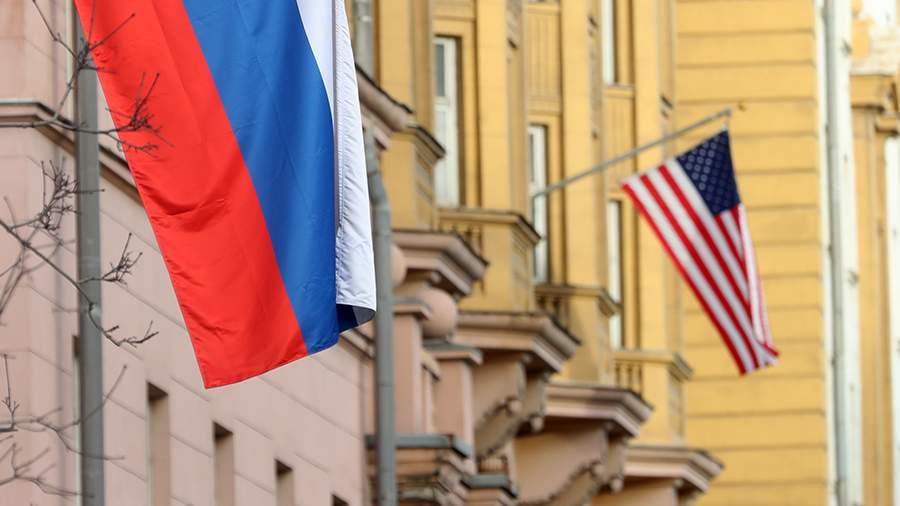Indifference to Zelensky and selling out Ukraine. What the media write after Trump's call to Putin
- Новости
- World
- Indifference to Zelensky and selling out Ukraine. What the media write after Trump's call to Putin

The actions of US President Donald Trump, who called Russian leader Vladimir Putin, continue to provoke strong reactions. In the West, they say that Washington has sold Ukraine and is no longer interested in the fate of its president Volodymyr Zelenskyy. In Europe, however, they fear capitulation to Russia. What the world media write about Ukraine's prospects - in Izvestia's digest.
The Washington Post: Ukraine's allies fear a deal "over Kiev's head"
The friendly tone of U.S. and Russian statements following the Trump-Putin phone call has some Ukraine supporters worried that they may be willing to make a deal "over Kiev's head" with concessions that would leave Ukraine vulnerable in the future.
The Washington Post
That concern began with Defense Minister Pete Hegseth's statement earlier in the day in Brussels that Ukraine should abandon its "illusory goal" of reclaiming all of its territory and forget about joining NATO. "This is certainly a groundbreaking approach to negotiations - making very large concessions before they even start", former Swedish Prime Minister Carl Bildt wrote on social media.
Ukraine would like more from the Trump administration. In particular, a credible U.S. commitment to support a European peacekeeping force. If negotiations stall or Trump demands too many concessions, there's a chance Ukraine will back out of the deal.
CNN: Indifference to Zelensky is growing in the West
Zelensky - once a symbol of Western unity against Russia - has faced growing indifference from the United States in recent days. For three years, he was at the center of the room, but now he's not sure he's in his place. He had hoped to meet with Trump in person to discuss a wide-ranging vision for peace, but instead learned of the U.S. president's call to Putin.
CNN
It was 48 hours of fever dreams, malarial night sweats and tremors for Zelensky. European leaders used to ride a rickety train all day just to get a picture with him. Now he's second on Trump's list of challenges after Putin.
Washington's new plan for Ukraine, announced by Defense Secretary Pete Hegseth, rules out Ukraine's NATO membership, a return to the 2014 borders and the participation of U.S. troops in future peacekeeping missions, in stark contrast to Kiev's demands. Zelensky openly demanded that Washington provide Ukraine with security guarantees, but Hegseth was quick to dispel the Kiev politician's illusions.
CNN: Hegseth linked future U.S. aid to Kiev's participation in peace talks
Hegseth made it clear that future defense aid to Ukraine could depend on its willingness to negotiate with Russia. He said Trump would determine "the most effective incentives or sanctions on both sides to achieve sustainable peace."
CNN
"I think it would be fair to say that things like future funding, less or more, could also be on the table. "What the president determines will be the most effective stick or carrot on both sides to achieve a sustainable peace, understanding obviously the motivations that Vladimir Putin has had with respect to Ukraine for quite some time," Hegseth continued.
The Pentagon chief also said he would not participate in negotiations between Russia and Ukraine, making it clear that he would continue to play a more secondary role in Ukraine's security issues than his predecessor, former Defense Secretary Lloyd Austin.
The Guardian: Trump's 'America First' stance has sold out Ukraine
There is no room for sentimentality in Trump's policy. The peace he will negotiate is not about justice. This has fundamentally altered US support for Ukraine, which for years was built on helping the country defend itself, even if without a guarantee of victory.
The Guardian
Much of Europe now wonders whether Trump is about to confront it with a fait accompli on its eastern flank, seeking to send European troops without any NATO protection into Ukraine as part of a security agreement negotiated solely between Moscow and Washington.
One European official calls what is happening a capitulation. Another fears that the U.S. will go further and withdraw its troops from Eastern Europe. That outcome appeared even more likely when Hegseth told his NATO colleagues that a reduction in U.S. troop levels in Europe could be part of any deal.
Bloomberg: Zelensky was just notified of Trump's upcoming call to Putin
Ukrainian President Volodymyr Zelensky (credentials expired on May 20) was notified of Putin and Trump's conversation in an almost "FYI" mode. His worst fear - that terms for a peace settlement were being negotiated behind his back - is coming true. Ukraine will have to cede territory it began losing in 2014.
Bloomberg
His [Zelensky's] offers of Ukraine's critical minerals in exchange for protection carried little weight. <...> While Trump was making major concessions before the talks even began, stunned European allies faced a $3 trillion bill to bolster their defenses and rebuild <...> Ukraine.
Zelensky's future is in doubt. Trump has emphasized his "not so good" poll numbers and the need for an election - a not-so-subtle hint that he wants him to resign. Even before Zelensky arrives at the Munich Security Conference, his country's fate seems already sealed.
Переведено сервисом «Яндекс Переводчик»

